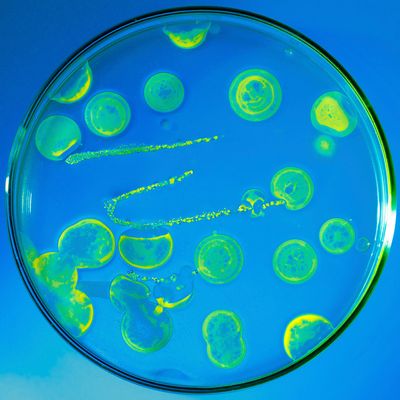
As the contents of one’s gut continues to draw wonder and awe within the wellness Zeitgeist (probiotics, anyone?), consider a new study that claims a specific range of gut-produced chemicals may slow down the body’s aging process. The chemicals are known as “indoles,” and while they can be found in the wild — in flowers and vegetables, for example — they are also found in feces due to their ability to break down tryptophan, an amino acid in some foods.
To test their hypothesis, researchers separated worms into two groups: One group was injected with bacteria that could produce indoles in their gut microbiome, and the other group was isolated from indole-generating bacteria. The researchers found that the group of worms that could produce indoles experienced a prolonged “health span” — otherwise known as an extended proportion of time where the worms remained free of age-related illness and wear. Health span is not the same as life span, which measures the length of one’s life.
The indoles worms remained physically mobile for a longer period of time, compared to the worms that weren’t able to produce the chemicals. They were also able to reproduce for a period over twice as long as the former group. Researchers found similar results with mice, where the indoles mice proved to be more resistant to infections. In effect, the bacteria-produced indoles seemed to slow down the physical indicators of aging.
The research was published in the Proceedings of the National Academy of Sciences. And while the study is not necessarily a call to load up on gut germs, it does suggest that bacteria is perhaps even more mysterious than we think.





